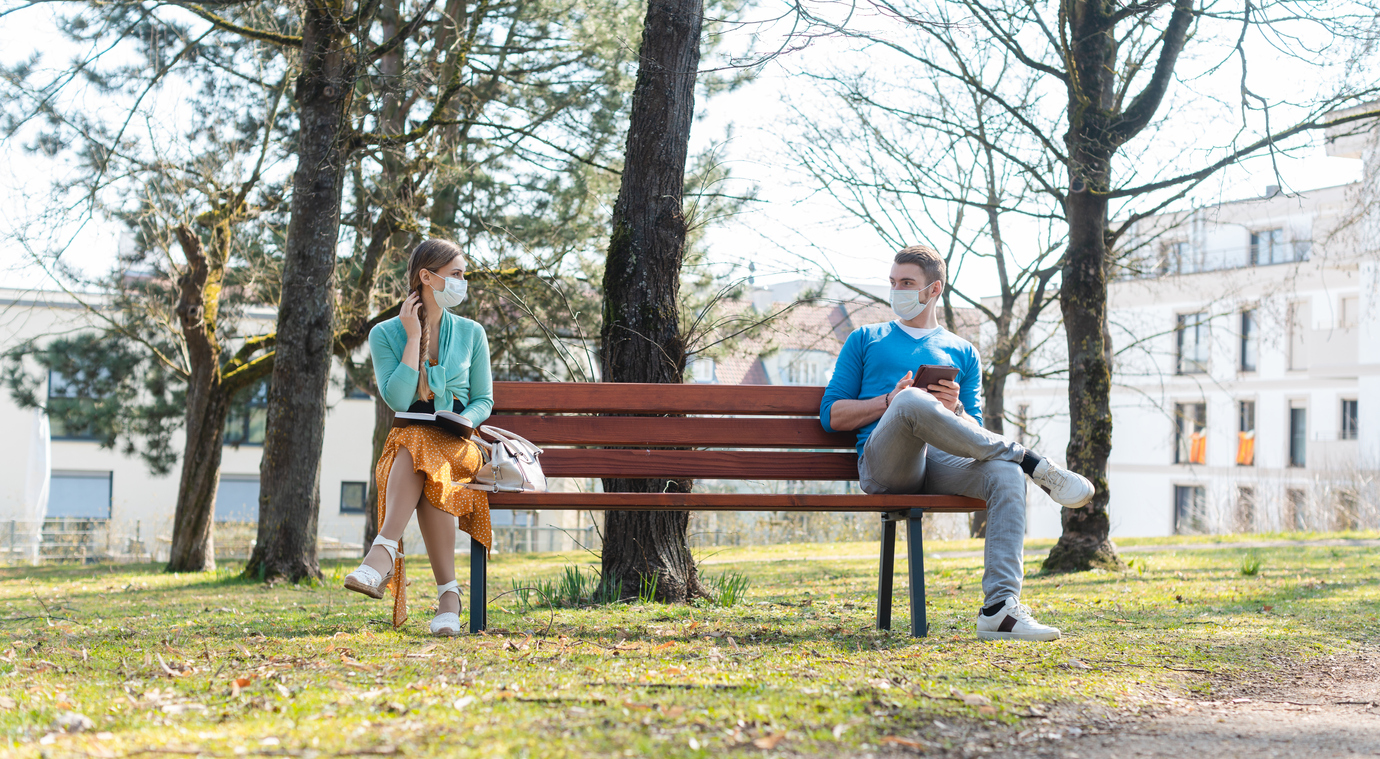
I was recently working with a client’s emerging leaders. Their pain was powerful and very disturbing. I watched bright, young adults talk about how lonely and depressed they were as they coped with the pandemic, social isolation, and remote workspace. For them, the one most important thing they wanted to change was social distancing. They did not want to be alone. It was less about being with others in-person than it was to be important to others, working with them, and talking to them, often. This isolation was creating uncertainty, a sense of fragility, and a diminished sense of confidence in themselves.
Their pain reminded me, the anthropologist, that people are herd animals. We have to be with others. We love to be part of the crowd, part of a community, and share our stories — be they with friends, families, co-workers, even strangers at meet-ups. These very smart young folks wanted to have people around them that they could see and talk to, now.
What they were telling us, as we know, is that life is social. Our emotional well-being comes from being with others, sharing our stories, and simply talking to people. Those everyday conversations are important to keep us on track, knowing that we matter and that all is well around us – even when it isn’t. Their emotional stress was very distressing.
What does the research tell us about social isolation?
Research tells us that social isolation is associated with depression, cognitive decline, heart troubles, and a weakened immune system. There is a 30% increase in the risk of coronary artery disease and stroke when people are alone and lonely. Of course, before the COVID-19 virus, almost one-half of Americans said they were struggling with loneliness and the depression that came from believing they were isolated and unengaged. In part, this was a reflection of a population that lived alone, with a quarter of the U.S. living alone pre-COVID. Further, with almost half the U.S. population unmarried, religious affiliation in decline, and an aging household, different factors have pushed people to face loneliness for a long time.
The social distancing and mask-wearing, the quarantines associated with the pandemic have just taken this all to the next level of pain that comes with change. Each of us is feeling the pain of change and not being able to overcome that loneliness is exacerbating the impact on our personal well-being.
What can you do about loneliness?
What does that mean for you as a leader or a manager or a mother? Why is social isolation so unhealthy, even terrifying for us? People need people so they can:
- Belong to a group and feel part of something bigger, and safer, than just themselves.
- Share ideas and stories. We live in our stories and without someone to share ours with we almost don’t exist. We start to tell ourselves our own story where we are the hero and everyone else is mistaken.
- Assess what they are seeing on their favorite TV show or video game. TV is where people get their information and their realities. When they play video games, they bond implicitly with others.
- Have fun. People need others to laugh, enjoy a moment, share something positive, and affirm they are ok.
- Watch out for the “others” who differ from us in our actions, ideas, and beliefs. We are cultural critters and see our world through the shared stories of our personal cultures.
In business, your colleagues and staff, clients and vendors are watching you to see what you are doing. It is important to know that your actions are essential to the well-being and survival of others. Choose carefully. Everything matters now. People don’t know what to expect, are uncertain who to trust, and are in need of clear direction for the future so they can live today. Lead-on but look back often to see who is following and how they are doing.
You are realizing that remote work was something you were already doing and thought it was a great way to give people the flexibility that they wanted. Now, many are coming to the realization that their folks still need a place to belong. They want others with whom to share their stories. The look for friends, and colleagues to have time together to laugh and complain. People need people. That’s why they aren’t solopreneurs or in the GIG economy. They needed a company in which to belong.
As business leaders are worried about their staff, mothers are concerned about their children, particularly their teenagers. They are wondering how to get them engaged when there isn’t going to be football practice or soccer games this year, and maybe not even in-person classrooms. This is going to be a time to be creative. Your teens may not know what to do by themselves, having lived in a highly structured world where games had rules and friends had little time for impromptu fun.
Friends of ours were at their beach home with their teenagers and were worrying about what they would do together. They pulled out games and began a game-a-thon evening. Another set of friends decided that they would stay safe by only socializing among the three families so their kids could be schooled at home, together, and the adults could share their homes for their co-working space.
What are you going to do to overcome the fear that comes with this social distancing?
This is a time to pause, dig deep into your creative juices, and find new ways to build relationships, knowing that reaching out and talking to someone can help them and you feel less lonely and happier. It is a time for acts of kindness that we know build our sense of well-being. And, we must do this while we protect each other by embracing the social distancing that can help us all stay healthy.

